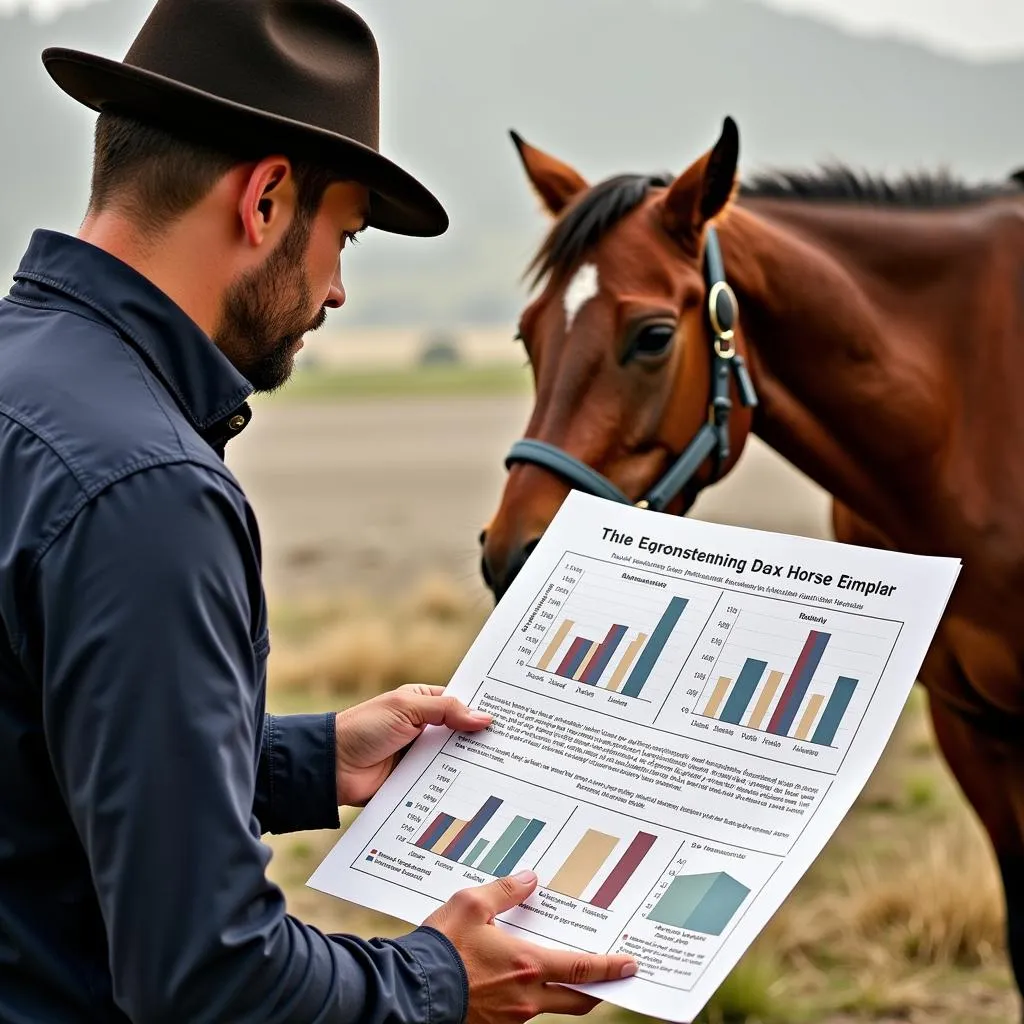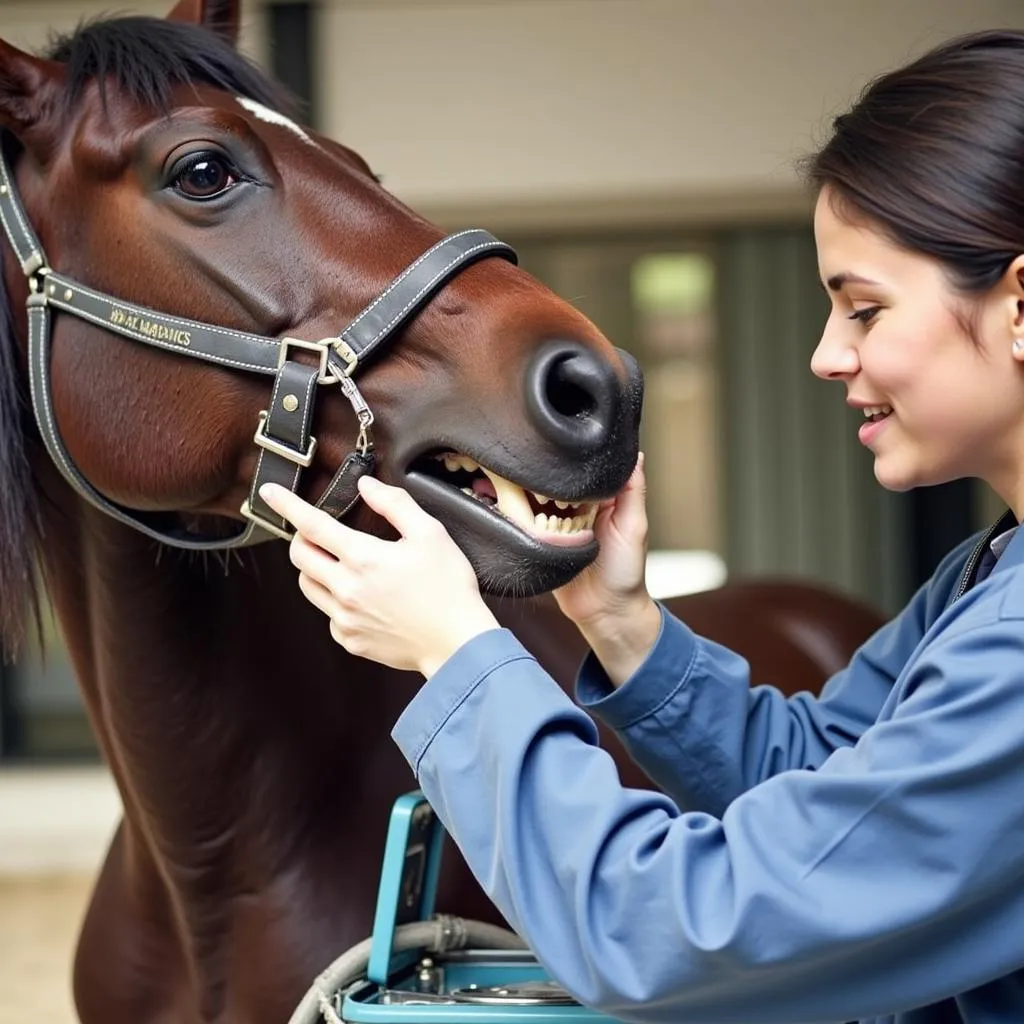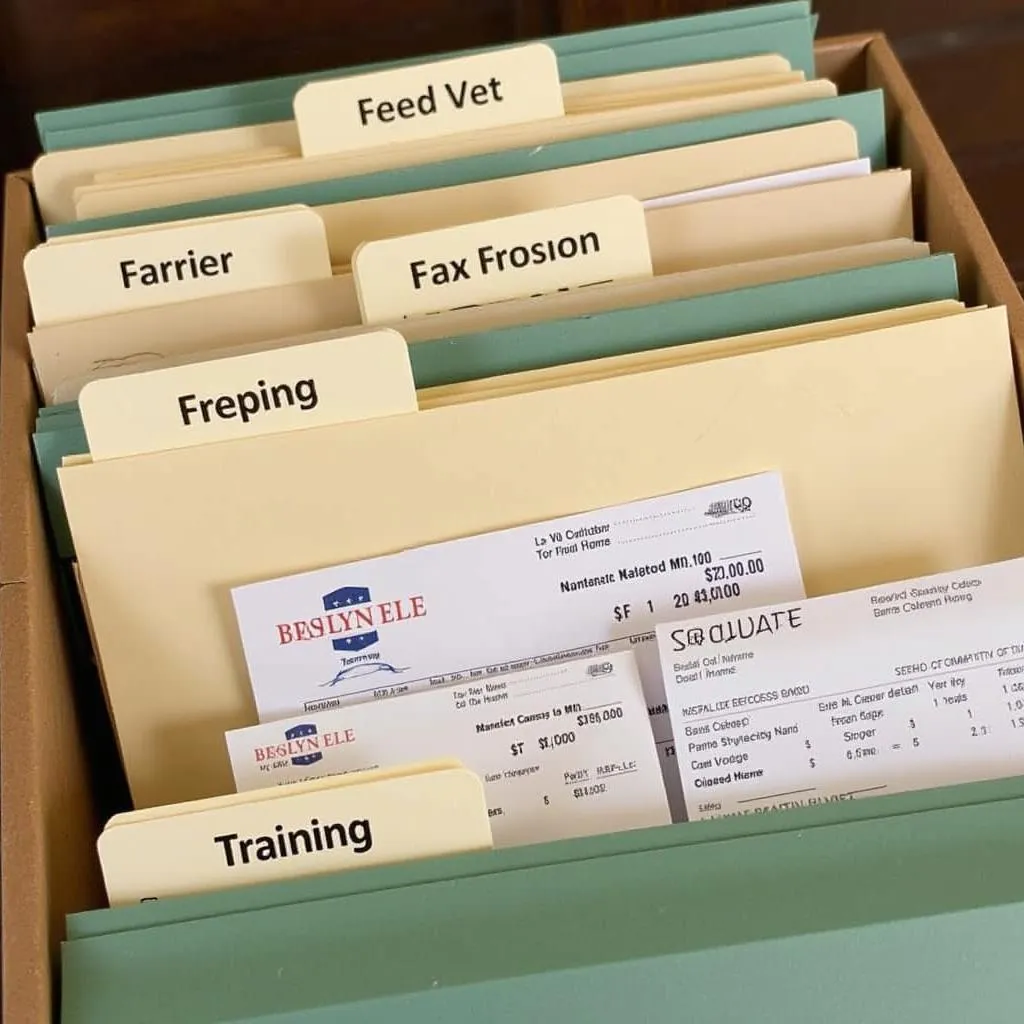Owning a horse can be an incredibly rewarding experience, but it also comes with financial responsibilities. Fortunately, the IRS offers a number of valuable tax breaks for horse owners, potentially saving you significant money come tax season. Understanding these “Tax Tips For Horse Owners” can be key to maximizing your deductions and minimizing your tax burden.
Taking the Reins: Are You Eligible for Horse-Related Tax Deductions?
Before you start saddling up for significant savings, it’s crucial to determine if you qualify for horse-related tax deductions. The IRS generally allows these deductions if you are engaged in equine activities for profit.
This doesn’t mean you have to be the next Kentucky Derby winner. Rather, you must demonstrate that your primary intention is to generate income from your horse-related activities.
 Horse Business Plan with Charts and Graphs
Horse Business Plan with Charts and Graphs
Common Equine Activities that May Qualify:
- Breeding horses: This includes income from stud fees, the sale of foals, and breeding rights.
- Horse Training: Offering riding lessons, training horses for competitions, or providing specialized training services.
- Boarding: Providing stable space, pasture, and care for other horse owners’ animals.
- Showing or racing horses: Earning prize money, sponsorships, or income from the sale of a successful show or racehorse.
Important Note: If you own horses solely for personal pleasure riding or companionship, you likely won’t qualify for these tax advantages.
Key Tax Deductions for Horse-Related Businesses
Once you’ve determined your eligibility, it’s time to explore the potential tax deductions available to you. Here are some key areas where you might be able to offset your equine expenses:
1. Ordinary and Necessary Business Expenses
Just like any other business, you can deduct ordinary and necessary expenses directly related to your horse operation. These may include:
- Feed and Veterinary Care: This includes the cost of hay, grain, supplements, routine vet visits, emergency care, and medications.
- Farrier and Dental Expenses: Regular hoof care from a farrier, as well as dental checkups and procedures, are essential for your horse’s well-being and deductible expenses.
- Facility Costs: If you rent or own a stable, pasture land, or riding arena, you can often deduct associated expenses like rent, mortgage interest, property taxes, insurance, and maintenance.
- Labor Costs: If you hire employees to help care for your horses, train, or manage your facility, you can deduct their wages, benefits, and payroll taxes.
 Veterinarian Examining a Horse's Teeth
Veterinarian Examining a Horse's Teeth
2. Depreciation
If you own horses for breeding, showing, or racing purposes, you may be able to depreciate their value over time. This allows you to deduct a portion of the horse’s purchase price each year, reducing your tax liability. The depreciation rules for horses can be complex, so consulting with a tax professional is highly recommended.
3. Startup Costs
If you’re just starting your horse-related business, you may be able to deduct certain startup expenses, such as legal fees for setting up your business, marketing and advertising costs, and initial facility improvements.
4. Home Office Deduction
If you run your horse business from a dedicated home office, you might be eligible to claim the home office deduction. This allows you to deduct a portion of your home expenses, such as rent or mortgage interest, utilities, and insurance, proportionate to the space used for your business.
Navigating the Tax Maze: Documentation is Key
 File Folders and Receipts Organized for Horse Business Expenses
File Folders and Receipts Organized for Horse Business Expenses
When it comes to claiming horse-related tax deductions, meticulous record-keeping is paramount. The IRS requires thorough documentation to substantiate your expenses and income.
- Maintain Detailed Records: Keep accurate records of all income and expenses related to your horse activities. This includes receipts, invoices, bank statements, and contracts.
- Separate Business and Personal Expenses: It’s crucial to maintain separate bank accounts and credit cards for your horse business to avoid commingling funds.
- Track Horse-Specific Expenses: When possible, keep track of expenses for each horse individually. This is especially important for breeding and showing horses, as you’ll need to track expenses related to each animal for depreciation purposes.
- Consult with a Tax Professional: Tax laws can be intricate and subject to change. Seeking guidance from a qualified tax advisor specializing in equine businesses can provide invaluable peace of mind and help you make the most of available tax breaks.
Conclusion
Owning a horse can be a financially demanding endeavor, but by understanding the “tax tips for horse owners” and leveraging the tax deductions available to you, you can potentially lighten the financial load. Remember to keep meticulous records, consult with a knowledgeable tax professional, and stay informed about relevant tax law changes to maximize your savings and gallop towards a brighter financial future.
Need Expert Assistance with Your Horse-Related Taxes?
Contact Justus Horses USA today! Our team is here to answer your questions and provide guidance on all aspects of horse ownership, including navigating the complexities of equine tax deductions. Call us at 0772127271, email us at [email protected], or visit our location at QGM2+WX2, Vị Trung, Vị Thuỷ, Hậu Giang, Việt Nam. We offer 24/7 customer support.